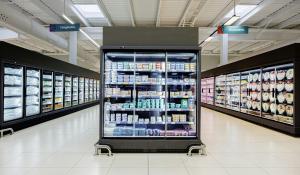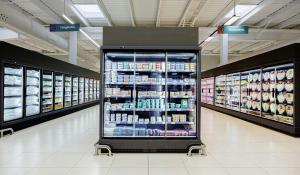
If have questions about recycling, we have answers. Here are some of our most commonly asked questions.
Q: If my recycling gets picked up in the same truck as trash, is it really being recycled?
A: Probably. In some municipalities, trucks have been retrofitted to collect trash on one side and recycling on the other in separate compartments. In others, the city sends around two different trucks, on the same day or different days. If you’re in doubt, contact your local solid waste authority and ask what happens to your recycling once it’s picked up.
Q: How do I know if my city is really recycling my plastic, glass, aluminum, and paper?
A: Call and ask. Look up your state's department of environment (or solid waste authority, if it has one), and ask them where your recycling is taken. If it’s taken to a Materials Recovery Facility (MRF) for sorting, call and ask the MRF operators what percentages of the materials that they receive are sold to recyclers, and what percentage they reject as “residuals.” Also ask how much of their recyclables are being shipped to Asia or other developing countries, where your garbage’s fate is more dubious than if it’s being recycled domestically.
Q: Some places I’ve visited accept a long list of materials for recycling, but my city has very specific guidelines. Why are the rules so different from place to place?
A: While the materials that are technically capable of being recycled don’t vary from place to place, the market for recycled materials fluctuates over time and varies locally in response to demand. In addition, there are also a range of tactics that municipalities use to maximize citizen participation in recycling. For example, some municipalities that do not recycle any plastics #3–7 nonetheless advise citizens to put all plastics #1–7 into their recycling bins, out of the belief that more people will participate if they don’t have too many complicated rules to follow. Then the MRF fishes out whatever they cannot recycle and sends it to a landfill or incinerator.
Q: My city only recycles plastics numbered 1 and 2. Is there a way I can recycle those numbered 3-7?
A: Probably not. “It’s safe to say that plastics with the resin code 3-7 are not recyclable and should be avoided by consumers,” says Mark Murray, executive director of Californians Against Waste. No plastics are truly recyclable back into the same type of container they were before, due to the chemical properties of plastics. Plastics #1 and some #2 are “downcyclable” into second-order products, like plastic “lumber” for picnic tables and decks. With the exception of a few model programs like that of Stonyfield Farms and Recycline—which turns used #5 yogurt cups into Recycline toothbrushes and razors—there is almost no domestic market for plastics #3–7. When municipalities do accept the higher numbered plastics, it’s often because they are under pressure from the public to take them. In most cases, higher numbered plastics are bundled together and shipped overseas to developing countries—where they may be burned as boiler fuel (which generates toxic air pollution), or simply dumped into unregulated landfills
Q: My grocery store accepts plastic bags for recycling. Can they really be recycled, or is the store greenwashing?
A: Some may be sold to actual recyclers—Safeway, in particular, has an arrangement with a domestic recycler to downcycle these plastic bags into compressed “lumber” for decks, fencing, and picnic tables. But the majority of the plastic bags collected by these receptacles are baled and shipped to Asia. What is done with them there? Even the man responsible for overseeing California’s mandatory plastic bag recycling law for supermarkets hasn’t been able to find out: “I’d love to know what happens to [baled plastic bags] overseas,” says Neal Johnson, a research analyst for the California Environmental Protection Agency. “There are a lot of anecdotal comments about whether it gets burned as boiler fuel [a toxic use of plastic that’s illegal in the US], or reprocessed as some sort of filler. We don’t quite know what happens there.” Your best bet: bring your own reusable shopping bags and produce bags with you to the supermarket.
Q: If I put the wrong number plastic in my bin, will it mess up the whole batch? Will it magically get recycled anyway
A: Every recycler does some mechanical and optical sorting to ensure the correct materials end up in the recycling stream, and large Materials Recovery Facilities are factory-sized sorting operations that make sure each recycler receives the right sort of materials. So while it’s helpful to workers at these facilities if you follow your municipality’s guidelines, you’re probably not going to ruin a whole batch of recycling if you periodically make a mistake. Chances are the non-recyclable item will get fished out down the line and thrown away, though it won’t get “magically recycled.” That said, polyvinyl chloride, also known as PVC #3 plastic —is rarely recyclable and has a fantastic capacity to mess up the downcycling of a whole batch of plastics #1 or #2; so try to be particularly mindful of keeping #3 out of your recycling bin. PVC is also unsafe, and several campaigns are afoot to end the use of the “poison plastic” in consumer products and construction materials. For more information, visit www.pvcfree.org, www.myhouseisyourhouse.org.
Q: Is a biodegradable product better than a conventional product if they both end up in a landfill?
A: Maybe a little, but not much. If biodegradable products are just headed for the regular trash, they are still part of the general waste stream. If they end up in a landfill, they’re unlikely to degrade aerobically when buried under tons of trash away from light, oxygen, or moisture. Instead, they’ll more slowly degrade with the help of anaerobic bacteria, a process that generates greenhouse gases: methane and carbon dioxide. That said, a product made out of a renewable resource such as bamboo probably has a better ecological footprint than one made from petroleum. And, using the new biodegradable plastics helps keep harmful PVC #3 plastic out of the waste stream—it’s the burning of PVC and other toxic plastics that cause some of the worst pollution from incinerators. However, the best choice is to use reusable items whenever you can. The second best is to use compostable products and then actually compost them. Find a community composting facility near you at www.findacomposter.com.
Q: Can you compost if you live in an apartment?
A: Yes! You can create a worm composting bin using Real Green’s step-by-step guide, or explore one of the motorized apartment composters on the market, such as NatureMill. Another option is to save your compost in a container in the freezer (to prevent smells) and give it periodically to a homeowner friend who composts.
Q: How can I start a recycling program in my city?
A: Read our article, featuring Tayler McGillis, a 12-year-old who started a community-wide aluminum recycling program in Toluca, IL.







